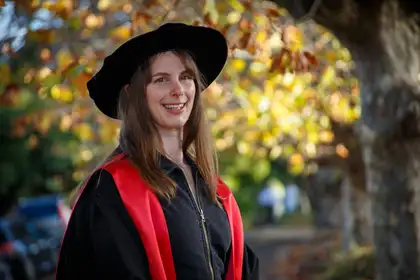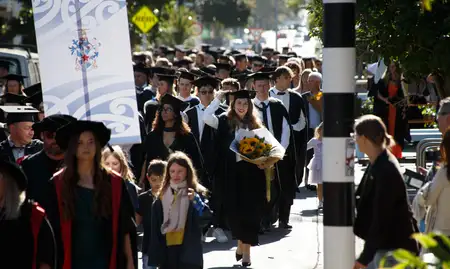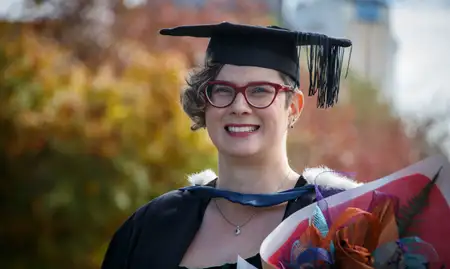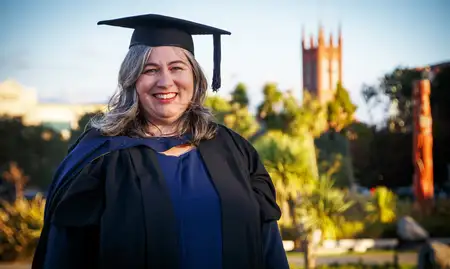
As social media continues to dominate daily life, Dr van der Sanden says she was interested in exploring how this digital environment provided easily accessible local pathways to buy and sell drugs and how it impacted on drug-related harms.
“My master’s thesis was focused on drug trading on the darknet, so I wanted to investigate a related area. Social media drug markets were emerging as a topic of interest and I was intrigued by how people would navigate the challenges of drug trading via these apps and the associated harms, particularly among younger age groups.”
Using a mixed methods approach, Dr van der Sanden used survey data and carried out anonymous interviews via an encrypted messaging app. She also carried out observational data collection on several Discord drug servers.
Dr van der Sanden says one of the most important study findings relate to the potential for social media drug markets to impact on young people’s trajectories into local drug markets.
“The findings indicated that younger age groups were more likely to purchase drugs via social media drug markets, which could make higher risk drug market environments more accessible to them at increasingly younger ages. However, study findings also illustrate how different social media and apps facilitated a variety of drug market dynamics. While certain platforms were linked to higher risk drug market dynamics, others were more closely linked to drug trades between friends, enabling the broadening of harm reduction impacts related to greater security and trust in drug trading. In this regard, the study findings highlight the mixed harm reduction impacts of social media drug markets in New Zealand.”
With research on this topic still growing in academia, Dr van der Sanden says her findings are particularly significant as they provide insight into how this phenomenon is taking place in New Zealand, where this type of in-depth research on local drug markets doesn’t often take place.
“I hope these findings provide a valuable local resource for policy makers, both in drug policy and in attempts to regulate social media companies, as well as for public health agencies and youth drug education to inform harm reduction strategies. It would be great to see these findings contribute to drug policy reform that prioritises a shift away from prohibition and criminalisation, especially for small-scale drug trades.”
The 30-year-old says writing her PhD thesis involved many challenges and triumphs.
“The part I most enjoyed was interviewing. I’m forever grateful to the people who took the time to participate in this study. I also found the analysis of interview data enjoyable, as this is where the story starts to take shape. It was great to bring everything together and turn it into a cohesive narrative. There were times when I struggled with the continually self-directed nature of the work, and the isolation of it in some parts. Especially in the final months, where it’s easy to get tunnel vision to the point where it feels like it’s taking over your life and turns you into a bit of a monster!”
Reflecting on her journey, Dr van der Sanden’s advice to future and current PhD students is to remember that it’s a marathon, not a sprint.
“It’s easy to forget that you are still fundamentally a student and you’re there to learn. Give yourself permission to make mistakes. It’s part of the journey.”
Dr van der Sanden has started a two-year postdoctoral researcher position with the SHORE and Whāriki Research Centre in Auckland, working on diverse projects related to vaping and cannabis policy, as well as continuing with social media drug market-related topics.
Continuing to collaborate with members of her supervisory team, she says she can’t thank them enough for their support.
“Professor Chris Wilkins and Dr Marta Rychert, along with Dr Monica Barratt from the Royal Melbourne Institute of Technology, brought together different strengths to create a comprehensive supervisory team and were willing to give me a lot of freedom. I got really lucky in that regard!”
Related news
Spotlight on staff success at Auckland graduation
This week saw more than 1000 graduates crossing the stage at Tāmaki Makaurau Auckland’s Bruce Mason Centre, including 13 staff members.

Embracing authenticity in social work
Having embarked on a five-year academic journey, Bachelor of Social Work graduate CJ Kane began her path towards social work over a decade ago while working in the disability sector.

From student advisor to postgraduate scholar - a journey of perseverance and success
Former Massey staff member Ruth Jackson graduated with her Master of Communication this week, after deciding to challenge herself with postgraduate study.
